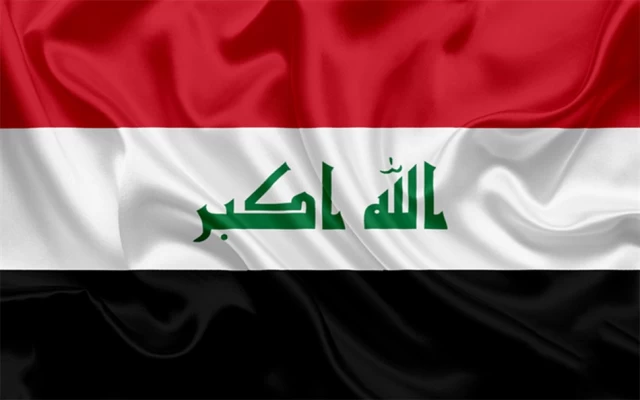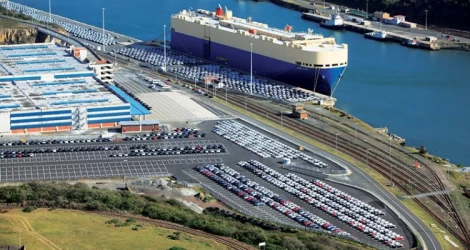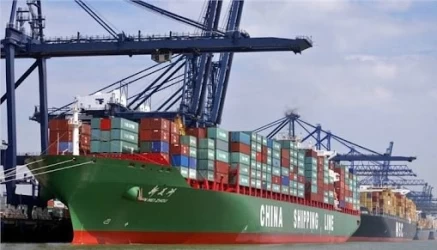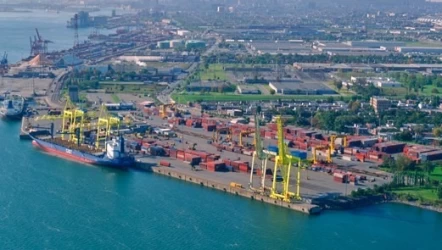Guide to trade with Iraq, sea transportation
Iraq, a country in the Middle East with a wealth of natural resources, particularly oil and gas, is emerging as an attractive market for international trade. With ongoing reconstruction and economic development efforts, Iraq offers numerous opportunities for trade and investment. In this article, we will explore a comprehensive guide to trading with Iraq, maritime transport options, and key considerations for businesses and traders.
1. Strategic Importance of Iraq in Trade
Iraq, with a population exceeding 40 million, has a high demand for a wide range of goods and services. The country's economy is heavily reliant on oil exports, which account for the bulk of its revenue. However, Iraq also relies on imports to meet its needs for essential goods, industrial equipment, and food products.
Key Trading Partners of Iraq:
- China: Iraq's largest trading partner, exporting a wide range of electronic and industrial products.
- Turkey: Supplies Iraq with food products, construction materials, and various industrial equipment.
- Iran: Exports consumer goods, energy, and industrial products to Iraq, playing a significant role in the country's economy.
2. Key Sectors of Iraq’s Economy
Iraq’s economy is primarily driven by oil and gas, but there have been efforts to diversify and reduce the reliance on these resources.
Major Industries:
- Oil and Gas: The most significant contributor to Iraq’s economy, accounting for more than 90% of government revenues.
- Agriculture: Iraq has vast potential in agriculture, but the sector needs investment and modernization to overcome challenges such as climate change and the aftermath of war.
- Construction and Infrastructure: Due to the need for post-war reconstruction, the construction sector plays a crucial role in Iraq's economic recovery.
3. Trade Regulations and Policies in Iraq
Trading with Iraq requires a thorough understanding of the country's trade regulations and policies. As a member of the World Trade Organization (WTO) and several regional trade agreements, Iraq is working to align with international standards.
Tariffs and Taxes:
- Customs Duties: Iraq imposes varying customs duties depending on the type of goods. These tariffs are critical for businesses to understand before exporting to Iraq.
- Value Added Tax (VAT): Iraq applies a VAT rate ranging from 10% to 15% depending on the goods or services being imported.
Licenses and Approvals:
- Certain products, especially food, pharmaceuticals, and medical equipment, require specific licenses and approvals from the Ministry of Health in Iraq.
4. Maritime Transport to Iraq
Maritime transport is one of the most critical methods for importing and exporting goods to Iraq. The country has several major seaports along the Persian Gulf and inland rivers that act as gateways for international goods.
Major Ports in Iraq:
- Umm Qasr Port: Iraq’s largest and busiest port, handling a significant portion of the country’s imports and exports.
- Al-Faw Port: This port is under development and is set to become one of the largest in the region, boosting Iraq’s maritime capacity.
- Khor Al-Zubair Port: Specialized in handling oil products and petrochemicals, playing a vital role in Iraq’s energy trade.
Steps for Maritime Transport to Iraq:
- Planning and Booking: Select an appropriate shipping route and line based on the type of cargo and destination.
- Documentation: Prepare necessary documents including the commercial invoice, packing list, bill of lading, and relevant certificates.
- Customs Clearance in Iraq: Pay applicable duties and submit documents to customs authorities.
- Inland Transport: After customs clearance, goods are transported from the ports to their final destinations via trucks or trains.
5. Costs of Maritime Transport and Logistics
The cost of maritime transport to Iraq depends on several factors, with container shipping being the most common method due to its safety and efficiency.
Factors Influencing Transport Costs:
- Weight and Volume of Cargo: Larger and heavier cargo incurs higher shipping costs.
- Shipping Route: Costs vary depending on the origin of the shipment. Longer routes naturally incur higher costs.
- Type of Goods: Hazardous or sensitive goods often come with higher shipping and handling fees.
6. Benefits of Trading with Iraq
Trading with Iraq offers numerous advantages:
- Large Market: With a growing population and high demand for consumer and industrial goods, Iraq is an attractive market for exporters.
- Strategic Location: Iraq’s position as a bridge between the Persian Gulf and Europe makes it a crucial hub for goods transport.
- Reconstruction Opportunities: The ongoing need for reconstruction provides opportunities for foreign companies, particularly in construction, energy, and agriculture.
7. Challenges of Trading with Iraq
Despite the many opportunities, trading with Iraq presents some challenges:
- Political and Security Instability: Iraq has faced significant security challenges due to past conflicts, which may affect business operations and trade.
- Infrastructure Issues: In some areas, Iraq’s logistics and transport infrastructure are underdeveloped, leading to potential delays in shipments.
- Corruption: Administrative corruption remains a challenge in Iraq, complicating the customs clearance process for businesses.
8. Conclusion
Iraq, despite its challenges, presents a promising market for international trade. With its rich natural resources, strategic location, and reconstruction needs, it offers numerous opportunities for businesses looking to expand. Maritime transport, with its established ports and growing infrastructure, remains the primary method for importing and exporting goods to Iraq. By understanding the trade regulations, selecting the right logistics partners, and addressing challenges such as security and corruption, businesses can successfully navigate the Iraqi market and benefit from its vast potential.
If you have any specific questions or need further assistance, feel free to ask!











